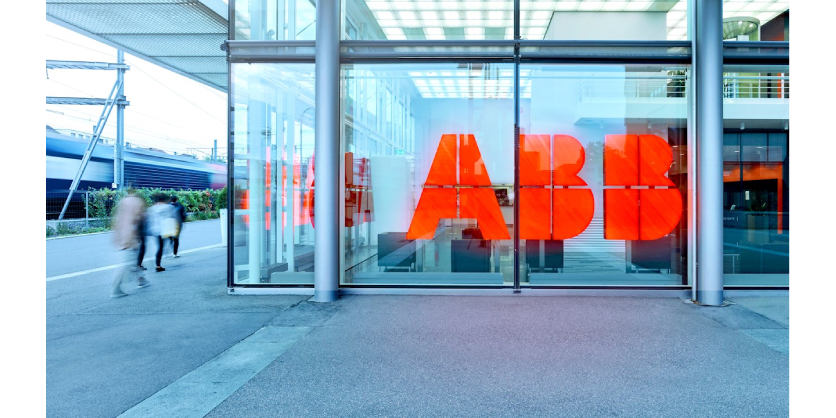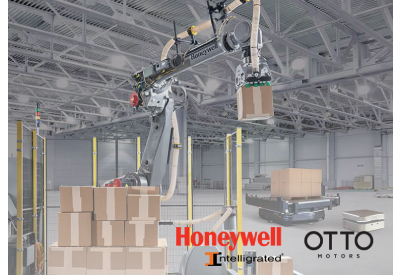ABB Contributes to New Report Showing How Industry Can Reduce Global Carbon Emissions By 11% By 2030 While Saving $437 Billion Annually
October 24. 2023

- Research undertaken by the Energy Efficiency Movement
- Supported by leading global industrial players including ABB, Alfa Laval and Microsoft
- Savings of 4 gigatons of carbon emissions delivered via 10 key actions using mature technologies which can be deployed quickly
As industry is facing the unprecedented challenge to meet global decarbonization targets while addressing growing demand, a new report from the Energy Efficiency Movement (EEM) demonstrates how businesses can start acting immediately. The EEM is a global forum founded by ABB, and now consisting of more than 400 organizations, that shares ideas, best practices and commitments to create a more energy-efficient world.
Published on October 24, 2023, “The Case for Industrial Energy Efficiency” aims to give corporate leaders key insights into 10 measures that rely on mature technologies, have a meaningful impact on costs and emissions and can be deployed quickly without complex or expensive projects. Building on the “Industrial Energy Efficiency Playbook,” published in 2022 by the EEM, the new guide helps corporations address one of the biggest barriers to energy efficiency: building their own business cases. In some instances, the savings arising from efficiency measures mean that transformation projects can be self-funding. Elsewhere, the report reveals investments in efficiency can serve as a valuable hedge against energy and carbon price volatility, while helping to meet voluntary targets and regulatory goals.
Doubling efficiency by 2030 could cut greenhouse gas emissions by almost a third compared to today’s levels, according to the International Energy Agency (IEA).1 And for industrial players, the opportunity is immense. The Energy Efficiency Movement estimates that if applied across industry, the 10 simple measures in this guide could save 1.5 gigatons of carbon emissions a year by 2024, and 4 gigatons by 2030, the equivalent of taking around three-fifths of the world’s internal combustion vehicles off the roads. These estimates are based on mid-range scenarios, yet still equate to an 11 percent reduction in annual global carbon forecasts by 2030.
Using the more ambitious scenario, the savings would go up to 5.3 gigatons, or nearly 15 percent of total 2030 emissions. For five of the 10 actions where financial savings can be meaningfully calculated, industry could be saving around $172 billion a year in 2024, and roughly $437 billion annually by 2030. Using the more ambitious scenario, the savings go up to $590 billion annually by 2030. Actions highlighted in the report include conducting energy audits, rightsizing industrial assets, bringing connectivitiy to physical assets, using high-efficency motors, among others.
“Ahead of COP28, it is important to demonstrate that there are mature and concrete technology solutions readily available to address the global warming issues we are facing,” said Tarak Mehta, president, Motion business area at ABB. “Since renewables can only provide a part of the answer, the critical role energy efficiency plays in accelerating the energy transition toward reaching net-zero emissions by 2050 is undeniable. The urgency is for the private sector to act now. This new report is designed to help speed the adoption of best practices by showing businesses how to realize the full potential of environmental and financial benefits.”Tarak Mehta, president, Motion business area at ABB
Recently, the IEA called for a ramp-up on annual energy efficiency progress from 2.2 percent today to over 4 percent annually by 2030 and recommends tripling annual efficiency-related investment for an energy-efficient future. Furthermore, the IEA stated that achieving this goal of doubling the rate of progress will require a tripling in annual efficiency-related investment, from $600 billion today to $1.8 trillion by the end of the decade. The EEM sees this guide as a contribution to this important call to action from the IEA.
The results for emissions reduction, industry savings and gross domestic product (GDP) growth are based on modeling commissioned by the EEM from Development Economics, an independent economic impact assessment provider. From May to October 2023, Development Economics undertook rigorous modeling of the economic and emissions outlook for each action in the guide. The modeling incorporated the best available data and included input from subject matter experts at leading industrial players including ABB, Alfa Laval and Microsoft. Expert advice was also provided by the IEA.
1. https://www.iea.org/reports/energy-efficiency-the-decade-for-action
ABB is a technology leader in electrification and automation, enabling a more sustainable and resource-efficient future. The company’s solutions connect engineering know-how and software to optimize how things are manufactured, moved, powered, and operated. Building on more than 140 years of excellence, ABB’s ~105,000 employees are committed to driving innovations that accelerate industrial transformation. www.abb.com
The Energy Efficiency Movement is a forum that brings together like-minded stakeholders to innovate and act for a more energy-efficient world. Through innovation, the sharing of knowledge and insights, adoption of available energy-efficient technologies, smart investments and the right regulations and incentives, we can optimize energy efficiency and accelerate progress toward a decarbonized future for all. The Movement was launched by ABB in 2021 and has received a positive reaction throughout industry, with more than 400 companies joining as of 2023. www.energyefficiencymovement.com\
Related Story
Research Reveals Energy Concerns Impacting Business Competitiveness, The Workforce and Decarbonization
Research shows that businesses around the world remain concerned about the impacts of energy security and prices, which could be a catalyst for a range of environmental, social and economic ripple effects. According to ABB Electrification’s Energy Insights survey1 of 2,300 leaders from small and large businesses across a range of sectors, 92 percent of respondents feel that the continuing instability of energy is threatening their profitability and competitiveness. Energy costs and insecurity are having a significant impact on the workforce with decreased investment in employees. Business leaders are also concerned about potential impacts of meeting their sustainability targets.



